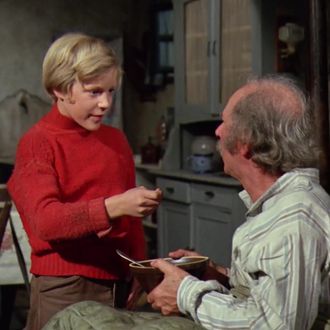
Altruistic behavior toward strangers, a growing body of research has found, brings with it emotional and health benefits. This can help explain what has traditionally been seen as the “mysterious” aspect of the behavior — why help someone you don’t even know or really care about? But as Jonas G. Miller, Sarah Kahle, and Paul D. Hastings of UC - Davis write in a new paper just published in Psychological Science, “less is known about the possible benefits … of altruism in earlier childhood.”
To learn more about this, the researchers got a group of 74 preschoolers together for an experiment. “By completing a variety of activities over the course of almost 2 [hours], each child gradually earned 20 prize tokens, which were kept for the child in a token box.” During this period, the kids had electrodes attached to their torsos to measure their physiological responses.
At the end of the experiment, the kids were told that they’d earned enough tokens “to get a really great prize.” If they wanted to trade the tokens in for that prize, they could. Or they could donate however many they wanted to a “sick children who could not come to the lab to earn prizes.” Then, the researcher running the experiment left the room so that the kid could decide how many tokens to decide in privacy.
Forty of the 74 kids donated at least one token, leaving 34 who didn’t. The median number of tokens donated was three, and the researchers noticed that the poorer kids donated more — every $15,000 increase in reported household income was associated with about one third of a reduction in tokens donated. There was also an interesting physiological finding, as the researchers write in their summary of the experiment’s results:
The current study provides evidence that (a) children who sacrifice resources to help other people demonstrate healthier parasympathetic functioning, as demonstrated by both greater vagal flexibility during an altruism task and higher vagal tone immediately afterward; (b) children from less wealthy families behave more altruistically than children from wealthier families; and (c) altruism augments vagal tone for children from both lower and higher income families, perhaps offsetting the physiological disadvantage linked to coming from a less economically prosperous background
What this basically means is that the kids who donated more appeared to have a better ability to respond to their environment in a physiologically healthy way and appeared to show evidence of healthy nervous-system functioning in the wake of donating. The researchers say there could be alternate explanations for some of the physiological findings, and that (as always) more research is needed. But the idea that poor kids are more likely to be generous shouldn’t necessarily be surprising in light of other research into the psychological effects money has on people.




